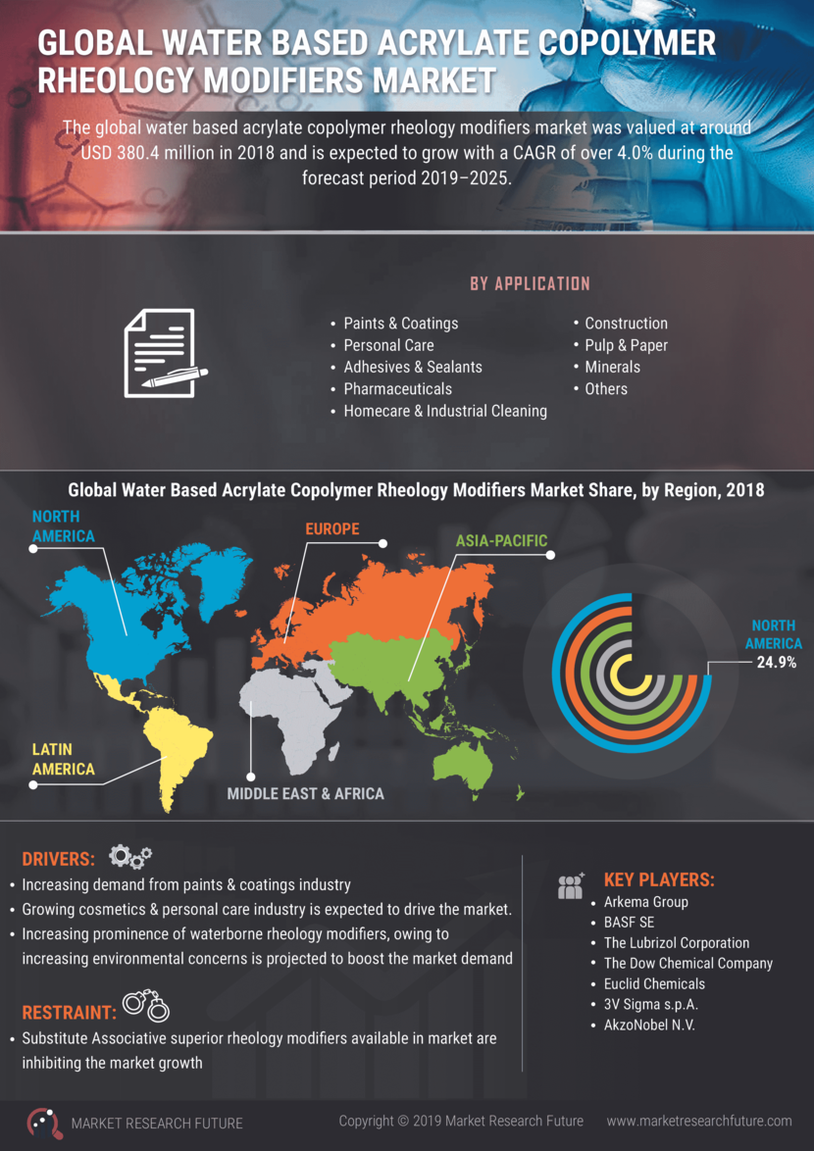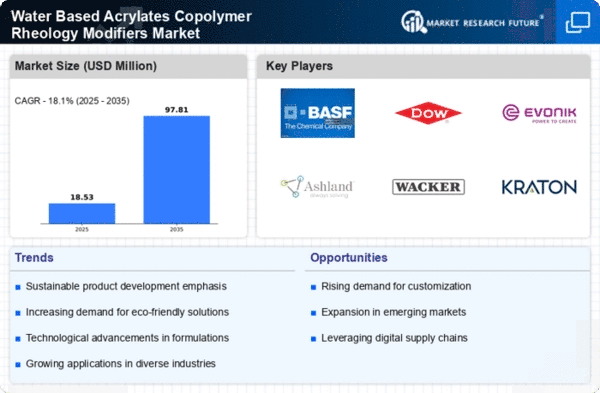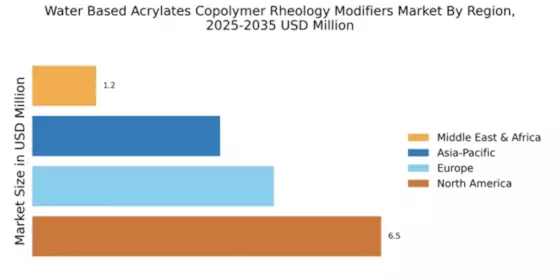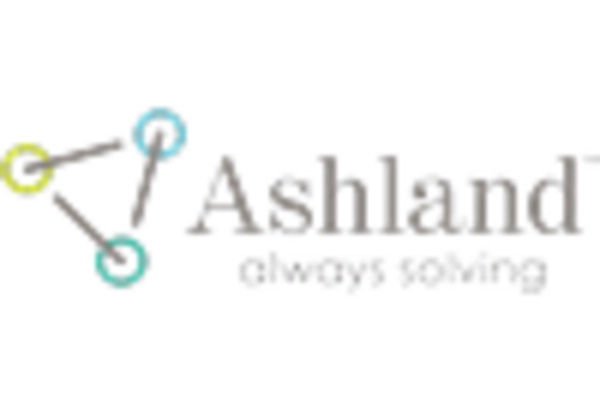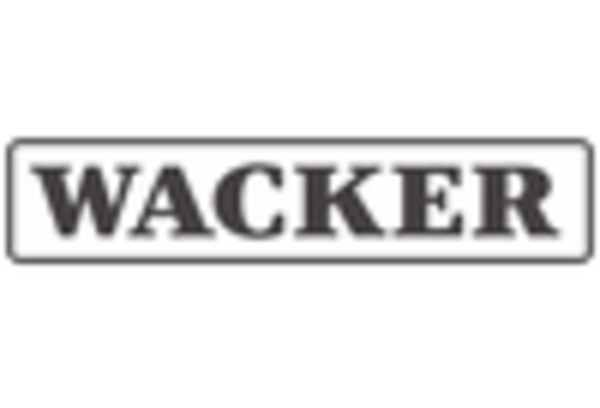Market Growth Projections
The Global Water-based Acrylates Copolymer Rheology Modifiers Market Industry is poised for substantial growth, with projections indicating an increase from 392.5 USD Million in 2024 to 583.9 USD Million by 2035. This growth trajectory suggests a compound annual growth rate (CAGR) of 3.68% from 2025 to 2035. The anticipated expansion is driven by various factors, including increasing demand across multiple applications, technological advancements, and regulatory support for sustainable products. As the market evolves, stakeholders are likely to adapt their strategies to capitalize on emerging opportunities and address challenges, ensuring a robust and competitive landscape.
Growing Demand in Paints and Coatings
The Global Water-based Acrylates Copolymer Rheology Modifiers Market Industry experiences a notable surge in demand driven by the expanding paints and coatings sector. This growth is attributed to the increasing preference for eco-friendly and low-VOC formulations. In 2024, the market is projected to reach 392.5 USD Million, reflecting a shift towards sustainable products. The incorporation of rheology modifiers enhances the performance and stability of water-based coatings, making them more appealing to manufacturers and consumers alike. As regulations tighten around solvent-based products, the demand for water-based alternatives is likely to continue rising, further propelling market growth.
Market Dynamics and Competitive Landscape
The competitive landscape of the Global Water-based Acrylates Copolymer Rheology Modifiers Market Industry is characterized by a diverse array of players, each striving to capture market share through innovation and strategic partnerships. This dynamic environment fosters continuous improvement in product offerings and customer service. Companies are increasingly focusing on research and development to create unique formulations that cater to specific market needs. As competition intensifies, the emphasis on quality and performance is likely to drive further advancements in rheology modifiers, thereby enhancing their market presence and contributing to overall industry growth.
Technological Advancements in Formulation
Innovations in formulation technologies significantly influence the Global Water-based Acrylates Copolymer Rheology Modifiers Market Industry. Advances in polymer chemistry and production processes enable the development of more efficient and effective rheology modifiers. These advancements not only enhance the performance characteristics of water-based products but also allow for customization to meet specific industry needs. As manufacturers strive to improve product quality and reduce costs, the adoption of these advanced modifiers is likely to increase. This trend is expected to contribute positively to market growth, as companies seek to leverage new technologies to gain a competitive edge.
Regulatory Support for Sustainable Products
The Global Water-based Acrylates Copolymer Rheology Modifiers Market Industry benefits from increasing regulatory support aimed at promoting sustainable and environmentally friendly products. Governments worldwide are implementing stricter regulations on volatile organic compounds (VOCs) and other harmful substances, encouraging manufacturers to transition to water-based formulations. This regulatory landscape not only drives demand for rheology modifiers but also fosters innovation in product development. As companies adapt to these regulations, the market is likely to see a shift towards more sustainable practices, further enhancing the appeal of water-based acrylates copolymer modifiers.
Rising Applications in Adhesives and Sealants
The versatility of water-based acrylates copolymer rheology modifiers positions them favorably within the adhesives and sealants segment of the Global Water-based Acrylates Copolymer Rheology Modifiers Market Industry. These modifiers improve the viscosity and stability of formulations, which is crucial for achieving optimal performance in various applications. As industries increasingly adopt water-based adhesives for their environmental benefits, the market is expected to expand. The projected growth from 392.5 USD Million in 2024 to an estimated 583.9 USD Million by 2035 indicates a robust CAGR of 3.68% from 2025 to 2035, suggesting a sustained demand for these innovative products.
